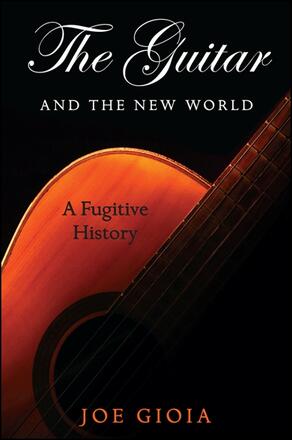
The Guitar and the New World
A Fugitive History
Alternative formats available from:
A transformative look at a popular instrument and a hidden chapter of American history.
Description
The American guitar, that lightweight wooden box with a long neck, hourglass figure, and six metal strings, has evolved over five hundred years of social turmoil to become a nearly magical object—the most popular musical instrument in the world. In The Guitar and the New World, Joe Gioia offers a many-limbed social history that is as entertaining as it is informative. After uncovering the immigrant experience of his guitar-making Sicilian great uncle, Gioia's investigation stretches from the ancient world to the fateful events of the 1901 Buffalo Pan American Exposition, across Sioux Ghost Dancers and circus Indians, to the lives and works of such celebrated American musicians as Jimmy Rodgers, Charlie Patton, Eddie Lang, and the Carter Family.
At the heart of the book's portrait of wanderings and legacies is the proposition that America's idiomatic harmonic forms—mountain music and the blues—share a single root, and that the source of the sad and lonesome sounds central to both is neither Celtic nor African, but truly indigenous—Native American. The case is presented through a wide examination of cultural histories, academic works, and government documents, as well as a close appreciation of recordings made by key rural musicians, black and white, in the 1920s and '30s.
The guitar in its many forms has cheered humanity through centuries of upheaval, and The Guitar and the New World offers a new account of this old friend, as well as a transformative look at a hidden chapter of American history.
Joe Gioia was born in Rochester, New York, and is a graduate of Kenyon College. Formerly senior editor at Modern Photography and a contributing editor at American Photo, he was an early contributor to Salon.com and is the author of Divide's Guide to Adventures of Huckleberry Finn. He lives in Chicago, where he is at work on a narrative history of photography.
Reviews
"Gioia's re-visioning of America's six-string past is a worthwhile trip to take … even when he is tracing a path that is otherwise well blazed, Gioia's fugitive purpose of shining light on indigenous confluences of American roots music ultimately, like so many great epic destinations, and blues songs, brings it on home." — Studies in Popular Culture
"Gioia … offer[s] some intriguing and meticulously researched theories on the blending of musical cultures in America." — Publishers Weekly
"Gioia has spun an odd web: Sicilian guitar-maker forebearers, a 111 year ago presidential assassination, a hypothesis that American Indians had as big an influence on blues roots as African Americans. Altogether, a deliberately spinning teacup ride of a book." — Tony Glover, coauthor of Blues with a Feeling: The Little Walter Story
"Inspired by an ancestor who emigrated from Sicily to Buffalo, New York, where he became a legendary luthier, Joe Gioia uses his personal history as a point of embarkation to explore the guitar's place in American roots music. From the Delta to Appalachia, and many points in between, this fascinating road map introduces readers to a cast of intriguing people and places." — Holly George-Warren, author of Public Cowboy No. 1: The Life and Times of Gene Autry
"The book is the best kind of American memoir, because it moves easily and naturally from one subject to another (apparently) quite different subject, adding up to an essay on what it means to be an American. It is … the best non-fiction page-turner I have read in quite a while … We need books like this one, lest we forget who we are." — Donald Clarke, editor of The Penguin Encyclopedia of Popular Music